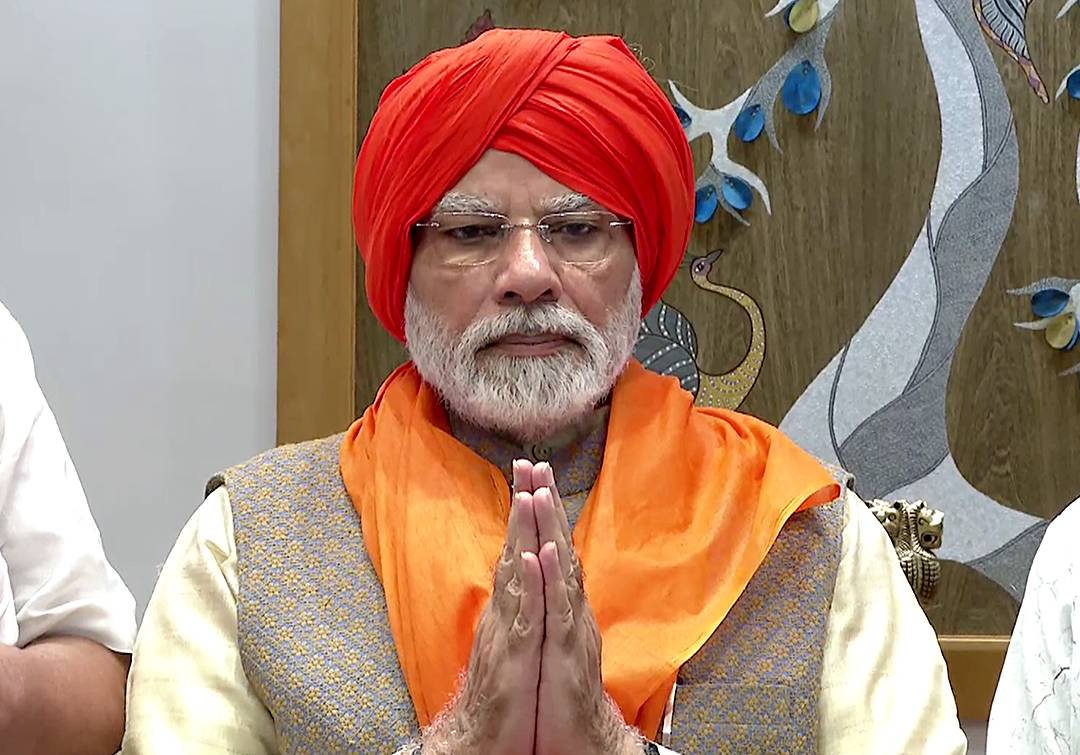AI Generated Summary
- The Prime Minister’s acknowledgment of the 1984 attack as an ‘attack’ is particularly poignant as it reflects the sentiments of the Sikh community, which had long considered it a grave tragedy, often referred to as the ‘Third Ghallughara’ or Operation Blue Star.
- In a momentous departure from his predecessors, Prime Minister Narendra Modi recently termed the 1984 attack on the Sikh community’s revered site, Sri Darbar Sahib Amritsar, as an ‘attack’ during a debate in the Lok Sabha.
- BJP leader Subramaniam Swamy’s resolution in Parliament, seeking transparency regarding the events of 1984, and the ongoing case in the Delhi High Court regarding the compensation for damage caused during the Sri Darbar Sahib attack reflect the government’s commitment to addressing historical grievances.
In a momentous departure from his predecessors, Prime Minister Narendra Modi recently termed the 1984 attack on the Sikh community’s revered site, Sri Darbar Sahib Amritsar, as an ‘attack’ during a debate in the Lok Sabha. This unprecedented acknowledgment marked a significant shift in the country’s political discourse. Prime Minister Modi’s bold stance on the issue not only resonates with the Sikh community but also draws attention to the Congress party’s past actions and their implications for minority communities.
During the no-confidence motion debate on August 10, 2023, Prime Minister Modi unequivocally criticized the Congress party for its historical deeds, emphasizing that the party cannot escape from its “past sins.” By drawing parallels between the 1984 attack and historical events like the use of the Indian Air Force against citizens in Mizoram in 1966, Prime Minister Modi shed light on the Congress party’s decisions that have affected minority communities. His statement not only expressed solidarity with the Sikh community’s pain but also underscored the significance of revisiting past injustices.
The Prime Minister’s acknowledgment of the 1984 attack as an ‘attack’ is particularly poignant as it reflects the sentiments of the Sikh community, which had long considered it a grave tragedy, often referred to as the ‘Third Ghallughara’ or Operation Blue Star. This departure from earlier government rhetoric demonstrates a shift in the Bharatiya Janata Party’s (BJP) approach toward acknowledging historical injustices faced by minority groups.
This transformation in the BJP’s stance is evident through the evolving vocabulary used by its prominent leaders. While the BJP had previously leaned towards supporting the actions of Indira Gandhi’s government, leaders like Lal Kishan Advani, Rajnath Singh, and Narendra Modi have exhibited a profound change in their discourse regarding the events of 1984. The change is apparent in the use of terms like ‘massacre,’ ‘terrible massacre,’ and even ‘terrorism’ to describe the violence that unfolded during that period.
This evolution extends beyond words. Efforts to seek justice and accountability have gained momentum. BJP leader Subramaniam Swamy’s resolution in Parliament, seeking transparency regarding the events of 1984, and the ongoing case in the Delhi High Court regarding the compensation for damage caused during the Sri Darbar Sahib attack reflect the government’s commitment to addressing historical grievances.
While Prime Minister Modi’s acknowledgment marks a significant step toward reconciliation, it is essential to emphasize that the scars of history run deep. The Indian judicial system’s recognition of the attack as ‘unnecessary’ underscores the need for introspection and learning from past mistakes. The lingering legal proceedings are a testament to the complexity of seeking closure on such issues.
The Sikh community’s resilience in the face of adversity is reflected in their unyielding memory of historical tragedies. This unwavering spirit has been a hallmark of their history, evident in their resistance against various oppressive regimes. Just as the community did not forget Massa Ranghar and Abdali, the memory of the events of ’84 continues to shape their identity and determination.
In this new era of accountability, the Modi government’s efforts to acknowledge past wrongs are crucial in building bridges with minority communities. The focus on addressing historical atrocities speaks to a commitment to justice, fostering peace, and nurturing communal harmony. This approach has the potential to mend wounds, strengthen relationships, and contribute to a more unified India.
As the nation moves forward, Prime Minister Modi’s acknowledgment of the 1984 attack sets a precedent for acknowledging past wrongs and working toward healing. By embracing history and seeking to understand its impact, India can create a more inclusive society that respects the dignity and rights of all its citizens.
The opinions expressed in this article are those of the author. They do not purport to reflect the opinions or views of Khalsa Vox or its members.




